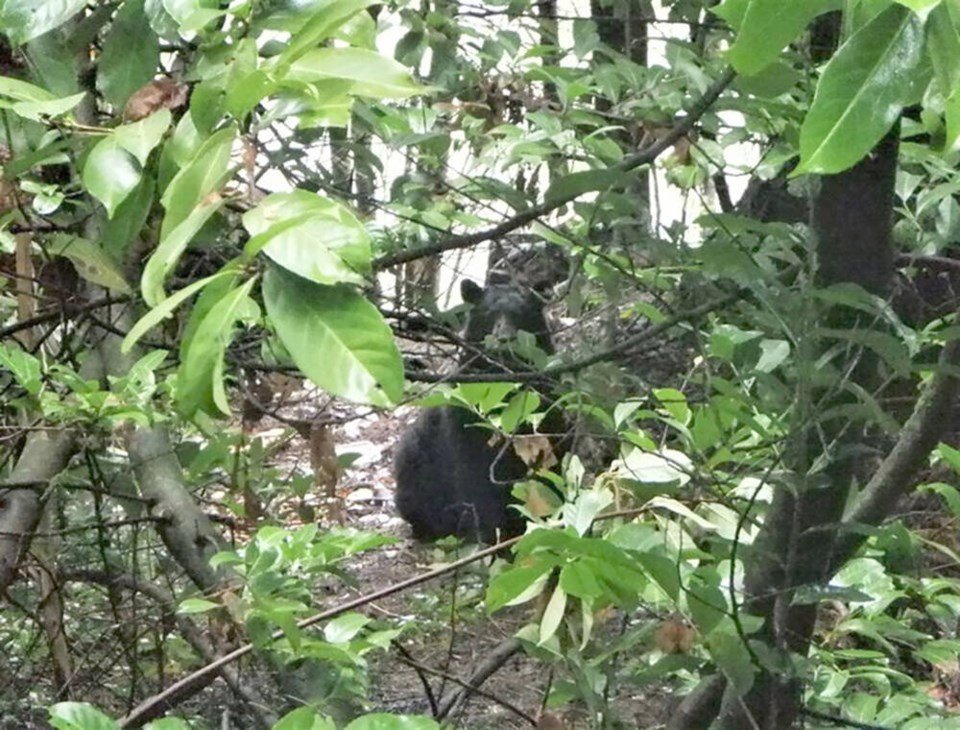A man found guilty of feeding bears and coyotes near Capilano River failed to appear in court for his sentencing. The case, handled by North Vancouver Provincial Court, involves 59-year-old Kenneth Amaral, who was charged in 2022 under British Columbia’s Wildlife Act.
He faced two charges: one for deliberately feeding or attempting to feed dangerous wildlife, and another for placing attractants that could draw wildlife. The charges followed a detailed investigation by the BC Conservation Officer Service.
The investigation began in April 2022 after a resident living near Keith Road reported that someone was leaving piles of food near his property, which lies above Capilano River. The food attracted bears and coyotes to the area. When the neighbour confronted Amaral, he promised not to leave food again.
Despite that, conservation officers placed motion-activated cameras in the area. Within a week, Amaral was seen on camera at least four times, leaving meat and other food at various sites. Officers recorded bears and coyotes showing up within 24 hours of food being left.
A conservation officer also met Amaral in person at the site. Amaral gave a voluntary statement and admitted he had left food. However, during his trial on July 9 and 10, he pleaded not guilty.
In court, Amaral claimed that the animals were already in the woods. He argued that putting food outside was not an attempt to lure them. He said his intent was to share food he didn’t want to waste. Amaral described feeding animals as a lifelong habit that gave him peace.
However, Judge Robert Hamilton rejected Amaral’s explanation. He pointed to the large amounts of meat found in the photographs—raw chicken, sausage, and ground beef—as clear evidence that Amaral’s actions went beyond casual feeding. The judge stated that there were safer and legal ways to dispose of unused food.
Hamilton found Amaral guilty on both charges. He emphasized the public safety risk, especially since the bait sites were near walking trails and areas used by hikers, dog walkers, and anglers.
Crown prosecutor Veda Kenda also highlighted the danger of such behavior. She explained that intentional feeding causes wild animals to become dependent on people for food. This leads to the animals losing their fear of humans, which increases the risk of conflict.
Kenda noted that one conservation officer came across a bear during the investigation. Despite his training, the officer was unable to drive the bear away from the food. For safety, he had to back off. This showed how dangerous the situation had become.
Because Amaral was caught multiple times on camera, Kenda said the Crown would seek a fine of around $24,000. She acknowledged that Amaral might not be able to pay the full amount.
Amaral was scheduled to attend a sentencing hearing on Tuesday. However, he failed to show up in court. Judge Hamilton said if prosecutors could not reach him by July 29 to set a new date, the court may issue a warrant for his arrest.
The court and conservation officers continue to stress that feeding wildlife, no matter how well-intentioned, can lead to dangerous situations. Habituated animals are more likely to approach humans and can become aggressive if they don’t find food. This often leads to the animals being relocated or euthanized.
Residents are urged to report any suspicious activity involving wildlife attractants and are reminded that feeding wild animals is both illegal and harmful.

